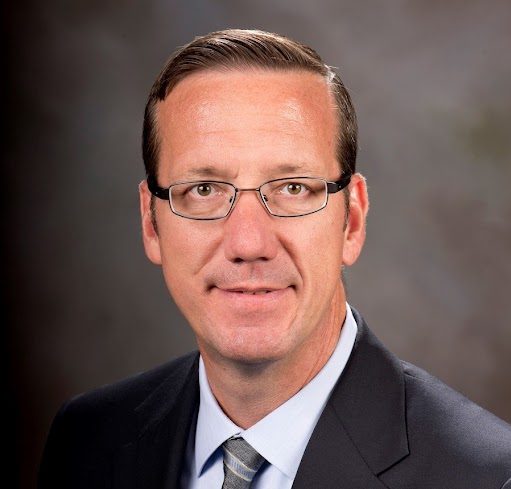On July 19 and 20, the University of Virginia hosted the Virginia Cybersecurity Education Conference, which brought cybersecurity educators together from across the state.
“It’s just good to connect these educators together to share resources and lots of interesting talks,” says David Raymond, director of U.S. Cyber Range, the event’s creator and organizer. “They get new ideas for things to use in the classroom. … It’s a fun opportunity to run into a whole bunch of people over and over.”
Funded by the state, Virginia Cyber Range provides cybersecurity education resources to Virginia’s public high schools, colleges, and universities at no cost. While the program is based out of Virginia Tech, students and educators across the commonwealth benefit from the company’s free, cloud-based programs.
Since the first conference in 2018, Cyber Range has increasingly incorporated cybersecurity educators into planning the VCEC, including on its executive committee. The committee is composed of 19 educators from Virginia community colleges and universities, including UVA professors Angela Orebaugh and Yuan Tian.
“I attended the very first conference at James Madison and learned about Cyber Range,” says Orebaugh. Over the past six years, Orebaugh has steadily incorporated resources from the conference into her teaching, and become more involved in the conference’s planning process.
“Since we didn’t have anything like Cyber Range, in order to do fun and interesting hands-on activities I actually had to put everything on a CD-ROM, and give each student a CD-ROM, and they booted it up on their computers in the classroom and worked through a series of exercises that way,” she says. Now, the computer science professor is able to create her own labs for her courses and draw on pre-existing courseware on the company’s resource cloud. “It’s a really great free resource for Virginia educators. … Other states don’t have this resource, sometimes their students have to pay.”
Attending the conference and serving on the executive committee has also allowed Orebaugh to connect with other educators in her field. “Depending on where it’s offered, I get to meet a few new people as well,” she says. With UVA hosting this year, Orebaugh took the opportunity to show some of her colleagues around town. “I get to tell them a little bit about the local area, see if I can get them to tour Grounds, see if I can get them to support our local businesses while they’re here as well.”
Beyond networking, Orebaugh also presented results from the inaugural Virginia Cyber Navigator Internship Program at this year’s conference. Funded by the NSA, VA-CNIP is run by six Virginia schools—UVA, VT, George Mason, Virginia Commonwealth University, Norfolk State University, and Old Dominion University—and teaches students about cybersecurity in elections before sending them on 10-week internships to local registrar offices.
“We are teaching students specifically what to think about in terms of cybersecurity, to secure election offices, the voting machines themselves that you and I go in and vote on, but also just think about the election offices,” says Orebaugh. “They’ve got laptops, they’ve got desktops, they’ve got printers all running in these election offices. What do we have to think about with securing them and securing the humans that are running those? That’s usually the most important piece.”
Between presentations, educators were introduced to innovative uses of Cyber Range resources through events like capture the flag or Catching a Cyber Criminal—A Digital Crime Scene Activity. For many instructors, these interactivities are not only fun, but serve as a source for classroom inspiration.
For organizers, inspiring instructors is a key part of VCEC. “We want to be able to help somebody teach some concept in a way that they hadn’t thought of before, or do some new interesting thing in the classroom that they haven’t done before that’ll help their students,” says Raymond.
“Every time I attend, I always bring something home with me to be able to incorporate into my classrooms. And that’s actually my goal for coming,” says Orebaugh. “Just solving the challenges that are being presented here today, I’ve already captured a bunch of ideas to incorporate it into my capture the flag final exam, or just into my labs or just classroom instruction.”
The VCEC will be held in Blacksburg next year, but Orebaugh says cybersecurity education and opportunities are available in Charlottesville. “A lot of times people don’t think about it, a lot of our students graduate from UVA and they move up to northern Virginia, New York, some of the other bigger cities,” she says. “There’s a lot of cybersecurity opportunity here in Charlottesville.”
